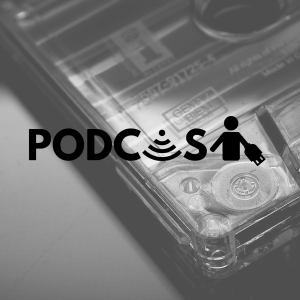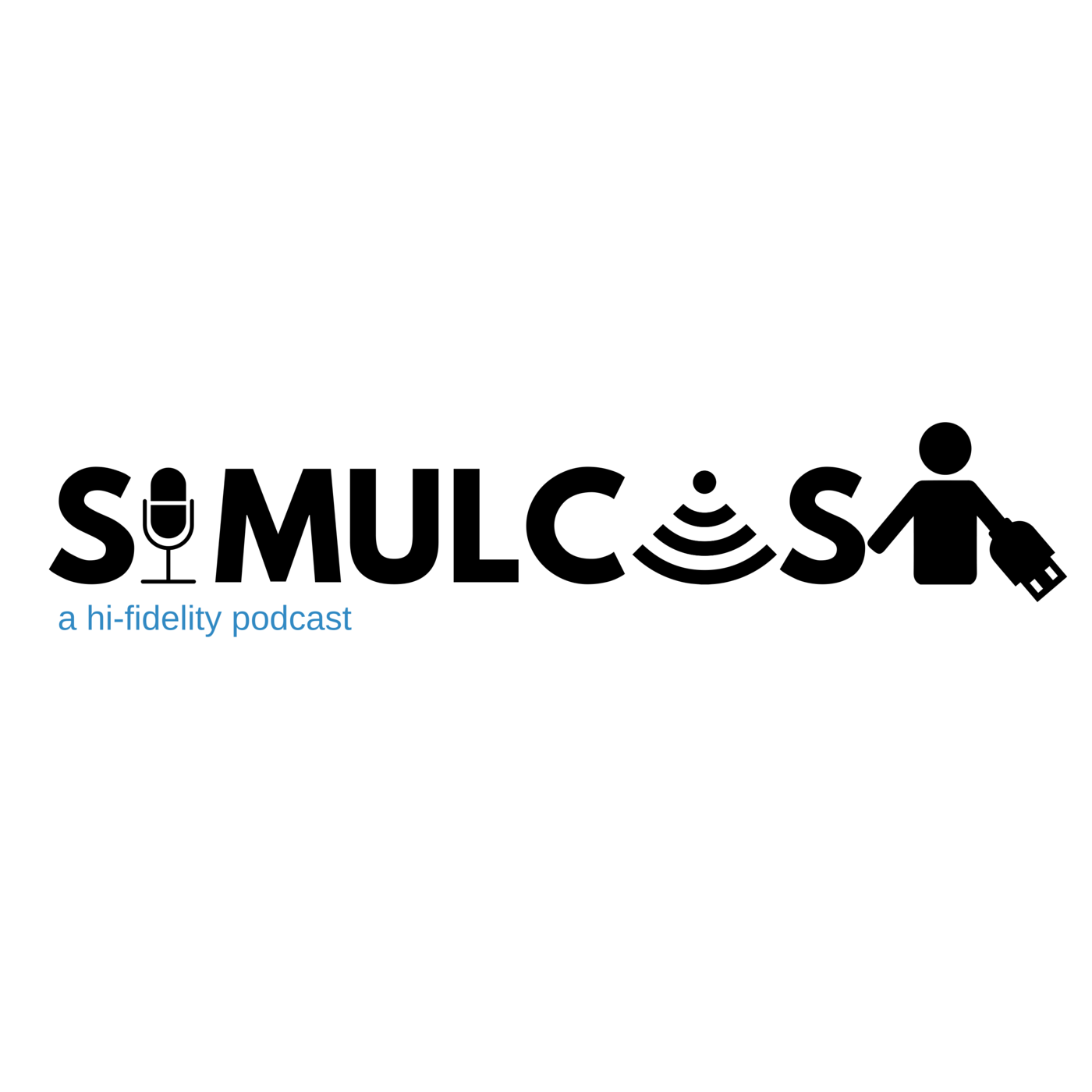Episodes

Monday Sep 30, 2019
88 - Simulcast Presents at ASC19 - Leadership with Sarah Janssens
Monday Sep 30, 2019
Monday Sep 30, 2019
At our live ‘Simulcast presents..” session at the Australasian Simulation Congress, Vic interviewed Sarah Janssens (@SJanssensSimOG), an Obstetrician / Gynaecologist ad simulation leader from the Mater Hospital. They speak about Sarah’s research on shared leadership in maternity teams – including models of leadership, measures of team performance, and what it means for how we train teams in simulation.
The two papers we discussed were.
Janssens S., Simon R, Beckmann M., Marshall, Stuart Shared Leadership in Healthcare Action Teams: A Systematic Review. Journal of Patient Safety: June 4, 2018
Janssens S, Simon R, Barwick S, et al. Leadership sharing in maternity emergency teams: a retrospective cohort study in simulation BMJ Simulation and Technology Enhanced Learning Published Online First: 07 February 2019.

Wednesday Sep 18, 2019
87 - #HcSimWeek19 STORK Team
Wednesday Sep 18, 2019
Wednesday Sep 18, 2019
STORK team @LankyTwig
STORK team (Simulation Training Optimising Resuscitation in Kids) from Children’s Health Queensland provides simulation based education throughout Queensland.
Check out the OPTIMUS Bonus Content at https://dontforgetthebubbles.com/practice-made-perfect/

Wednesday Sep 18, 2019
86 - #HcSimWeek19 Nemat Alsaba
Wednesday Sep 18, 2019
Wednesday Sep 18, 2019
Nemat Alsaba @talk2nemat
Nemat drops in for #HcSimWeek19 to share about 2 great sim projects she is involved with at Gold Coast University Hospital and Bond University

Wednesday Sep 18, 2019
85 - #HcSimWeek19 Steph Barwick & Mater Education Team
Wednesday Sep 18, 2019
Wednesday Sep 18, 2019
Stephanie Barwick @InSituSteph
Steph dropped by for #HcSimWeek19 to share the work of the Mater Education team.
Definitely big friends of Simulcast and hosts of the Simulcast Journal Curry Club!

Wednesday Aug 28, 2019
84 - Book Review: Healthcare Simulation at a Glance
Wednesday Aug 28, 2019
Wednesday Aug 28, 2019
Vic speaks with Kirsty Forrest (@forrest_kirsty) Glance about simulation, book writing and lifelong learning. Kirsty and Judy McKimm have co-edited an easy to read book with diverse contributors.
The book can be viewed/ purchased here.
https://www.wiley.com/en-us/Healthcare+Simulation+at+a+Glance-p-9781118871836

Wednesday Aug 21, 2019
83 - FOAMsim and Online Learning with VCHlearn
Wednesday Aug 21, 2019
Wednesday Aug 21, 2019
Looking for great online simulation education resources for yourself or for your team’s faculty development?
In this episode Vic speaks with Christina Choung (@ckchoung) and Karen Schafer (@KarenShafer) from Vancouver Coastal Health about their new resources at https://bcsimulation.ca/
(you can also get there via https://simulation.vchlearn.ca/ )
We talked about the content of these modules, the challenges of faculty development, and some lessons learned for those of us trying to develop online resources in simulation education.
@BCSimNet on Twitter

Saturday Aug 17, 2019
82 - Australasian Sim Congress 2019 Preview
Saturday Aug 17, 2019
Saturday Aug 17, 2019
The Australasian Simulation Congress is on 2nd–5th September at the Gold Coast. Check out the website-https://www.simulationcongress.com/ Vic spoke to Sharon Clipperton (@sjclipperton), the Congress convenor about the keynote speakers, abstracts and other highlights of the event. We also spoke with Komal Bajaj (@KomalBajajMD) about her talk–change, sustainability and ‘new power’ in simulation....The Simulcast team will be covering proceedings, as well as hosting a “Simulcast presents” session with interviews, and a live journal club recording on stage! See you there.

Thursday Aug 15, 2019
81 - Healthcare Simulation Week 2019
Thursday Aug 15, 2019
Thursday Aug 15, 2019
This is a mini episode update on how we at Simulcast would love to celebrate healthcare simulation week 2019.

Sunday Aug 11, 2019
80 - Journal Club Podcast Monthly Wrap July 2019
Sunday Aug 11, 2019
Sunday Aug 11, 2019
Ben and Vic discuss the paper of the month,
Bochatay, N., Bajwa, N., Blondon, K., Junod Perron, N., Cullati, S. and Nendaz, M. (2019). Exploring group boundaries and conflicts: a social identity theory perspective. Medical Education.
We also discussed 3 other papers covering a theme of ‘non-technical skills’.
- Hamilton AL, Kerins J, MacCrossan MA, et al Medical Students’ Non-Technical Skills (Medi-StuNTS): preliminary work developing a behavioural marker system for the non-technical skills of medical students in acute care BMJ Simulation and Technology Enhanced Learning 2019;5:130-139.
- Johnson AP, Aggarwal R Assessment of non-technical skills: why aren’t we there yet? BMJ Quality & Safety 2019;28:606-608.
- Hughes PG, Ahmed RA Blindfolded trauma team resuscitation: a strategy for improved leadership and communication BMJ Simulation and Technology Enhanced Learning 2019;5:174-175.
And Ben introduced the paper for August
So we’ll be back at the beginning of September with our wrap – recorded live at the Australasian Simulation Congress .
Join the discussion at www.simulationpodcast.com
Victoria

Thursday Jul 04, 2019
79 - Journal Club Podcast Monthly Wrap June 2019
Thursday Jul 04, 2019
Thursday Jul 04, 2019
Ben and Vic discuss the papers of the month, including expert commentary from Kristian Krogh
Eve Purdy, Charlotte Alexander, Melissah Caughley, Shane Bassett, Victoria Brazil. Identifying and Transmitting the Culture of Emergency Medicine Through Simulation. AEM Education and Training 2019; 3: 118– 128 (Open access)
We also discussed 3 other papers covering a theme of ‘measurement’.
Diederich, Emily, MD et al. Balancing Deliberate Practice and Reflection. A Randomized Comparison Trial of Instructional Designs for Simulation-Based Training in Cardiopulmonary Resuscitation Skills. Simulation in Healthcare: June 2019 - Volume 14 - Issue 3 - p 175–181
Endacott R, Gale T, O’Connor A, et al Frameworks and quality measures used for debriefing in team-based simulation: a systematic review BMJ Simulation and Technology Enhanced Learning 2019;5:61-72.
MacKinnon et al Defining and measuring quality in acute paediatric trauma stabilisation: a phenomenographic study. Advances in Simulation 20194:4
And Ben introduced the paper for July.
Bochatay, N., Bajwa, N., Blondon, K., Junod Perron, N., Cullati, S. and Nendaz, M. (2019). Exploring group boundaries and conflicts: a social identity theory perspective. Medical Education.
Additional Reading & Podcast for those interested in a deep dive :
Eppich, W. and Schmutz, J. (2019). From ‘them’ to ‘us’: bridging group boundaries through team inclusiveness. Medical Education.
http://revisionisthistory.com/episodes/26-the-hug-heard-round-the-world
So we’ll be back at the end of July with our wrap – join the discussion at www.simulationpodcast.com

